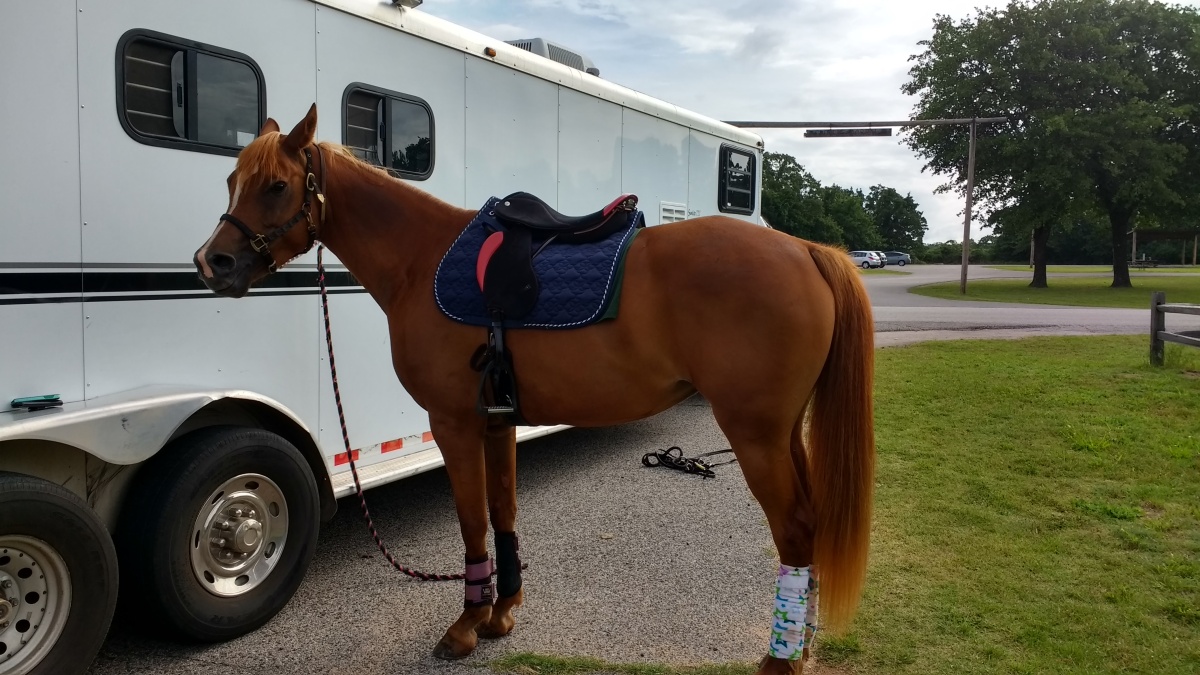I’ve noticed a lot of advice to prospective horse-owners along the lines of “it’s so important that you enjoy riding that horse” and “you really need to make sure you like him before you buy him” and “in endurance, you are on the trail for LOTS of miles, and nothing matters as much as whether you get along with that horse” (most of my online horsing has been with the endurance community).
All this is entirely true. Chemistry happens between horse and human just as much as it does between human and human, and it’s just as important. I don’t know how many horses I’ve ridden that I just didn’t get along with. Sometimes they were docile and well-trained and we performed well together whatever it was we were supposed to do (show, race, ride down the trail). Sometimes the lack of chemistry has meant that a horse that is a perfect angel for other riders is a little monster for me (and sometimes it’s vice versa).
But… you can learn to get along with any horse, and the more you work with a horse (and the more it costs you), the more you are likely to end up loving that horse in the end.
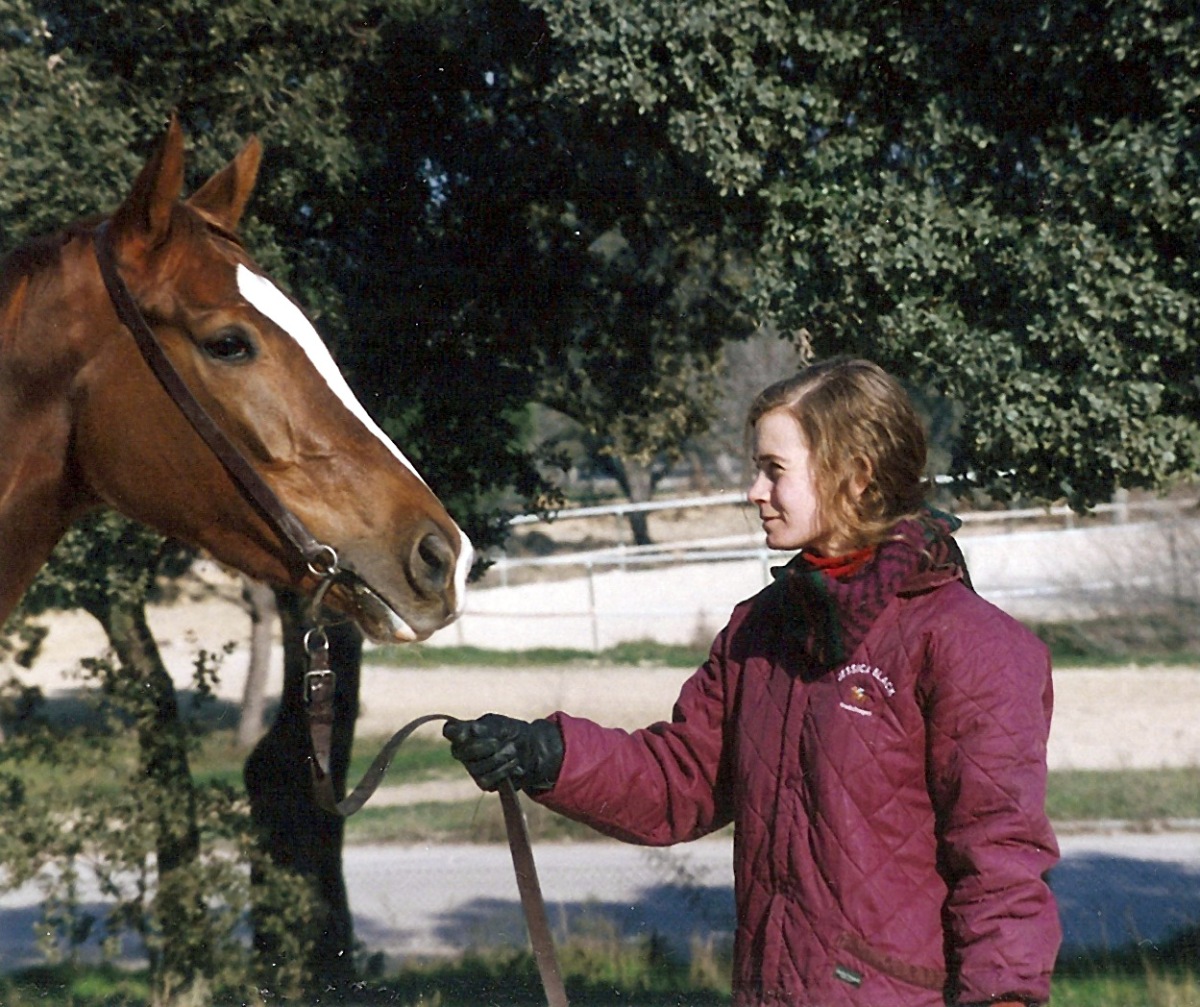
Caveat: This does not apply to fear and pleasure riding.
If your livelihood involves riding horses, and you are afraid, you have two choices: overcome the fear or change professions/jobs. If you are riding for pleasure, you shouldn’t have to fight fear.
I am not talking about nervousness associated with competition. Nor do I mean fear of looking like a fool because your horse decides to show what a poor horseperson you are.
I am talking about true fear, that makes you not want to ride that horse. If you are scared to ride that horse, you need to either get another horse, or get professional help. If the professional does not make significant progress to help you combat that fear, get another horse. There are LOADS of horses out there; you should be having fun (most of the time).
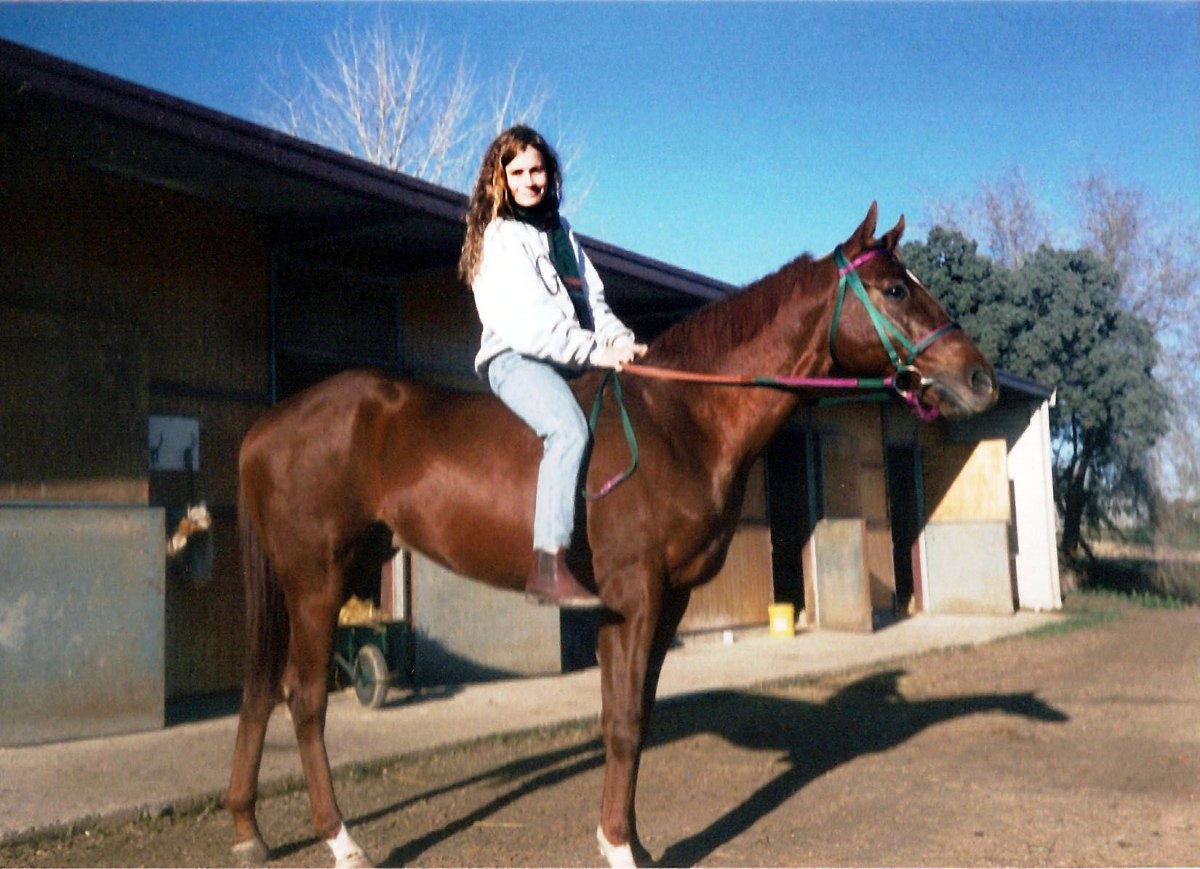
Assuming that you are not afraid to ride a horse… you will probably learn to love it.
The thing is, I am sceptical that it is possible to tell if you will really get along with a horse based on a few rides. Or rather, I am sceptical that you can tell that you won’t ever get along with a horse based on a few rides.
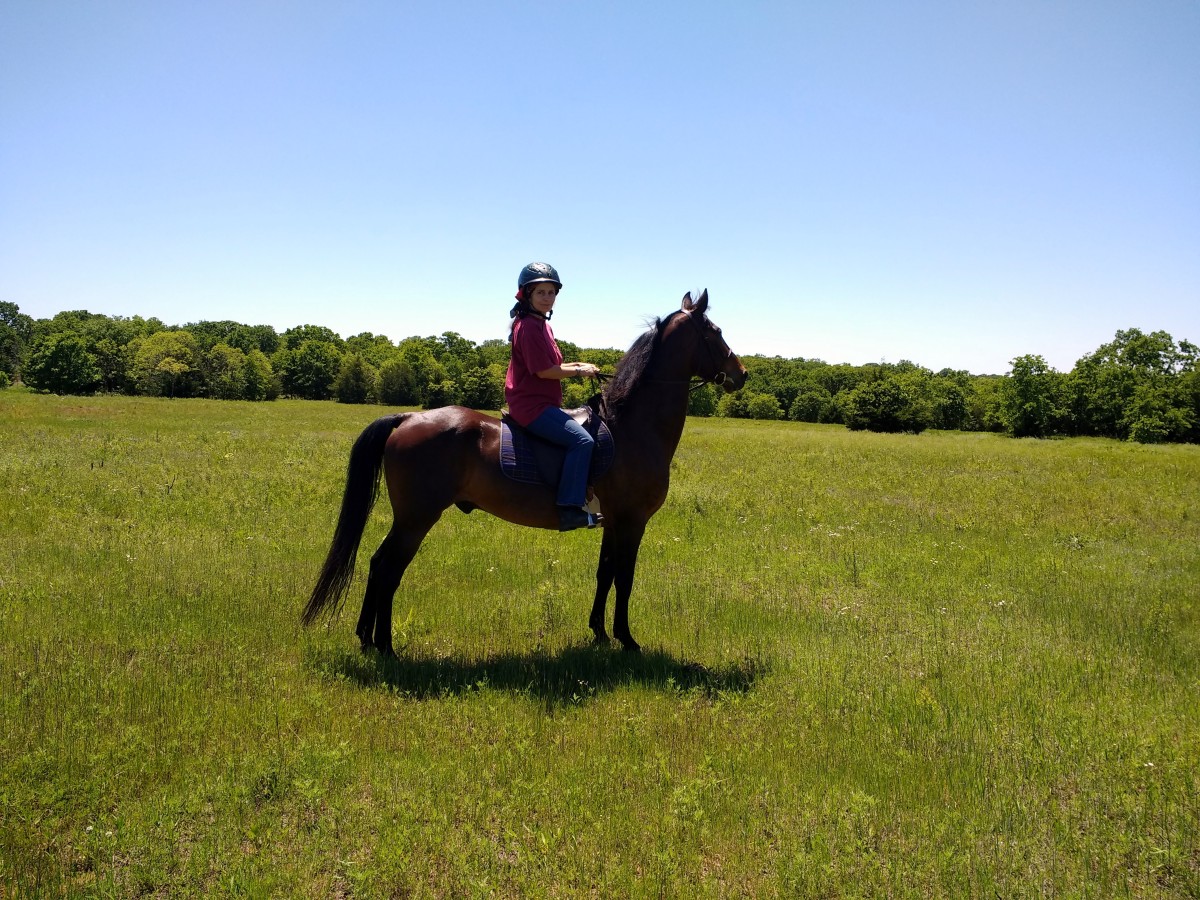
Sometimes the horses that challenge us are the ones we end up most committed to.
Galloping race horses teaches you to ride anything
For many years, I galloped racehorses (About the horsey-me). Once I had done it for a while, and established a reputation (and acquired skill), I could pretty much pick and choose. I was free labor, and trainers cater to that as much as possible.
That said, who wants to say, “Don’t give me that filly, I just hate her!” and much less “I can’t handle that colt, please take me off him!” (Is there anyone who admits to incompetence??) Of course, you can make a big deal about loving certain horses… And if you also make those horses work well, there’s a chance you will be allowed to ride them. But if the horse doesn’t run for you, it doesn’t matter how much you love it, you’re going to be taken off it.
That’s just the nature of the game. And there will always be horses that you end up riding reluctantly, either because they have behavioral problems or are just plain slow (no one wants to be last all the time).
Succeeding with a less-than perfect horse can mean so much more than cruising to victory with a dream horse
The reward for making a slow horse win a gallop, or a naughty horse behave, is far greater than the jealous “so what?” received when you win gallops with the best colt in the stable, or when the best ride (the most docile but also decently fast) behaves well for you. Anyone looks good on a good horse. Few can make a bad horse look good.
But the really impressive thing about riding the losers is that you invest in them. You spend hours thinking about them, trying to figure out what makes them tick, how to reach them. You wonder how to get them to run a little faster or bend a little more flexibly. Perhaps you devise tricks to make them take that lead, face that monster.
And after all those hours, you won’t be able to hate them. Every little success will carve a place in your heart, and in the end, even if you’re relieved to see them go (in the case of other people’s horses, or your own that you end up selling), you’ll be a better rider and you’ll feel a bit sad when you say good-bye.
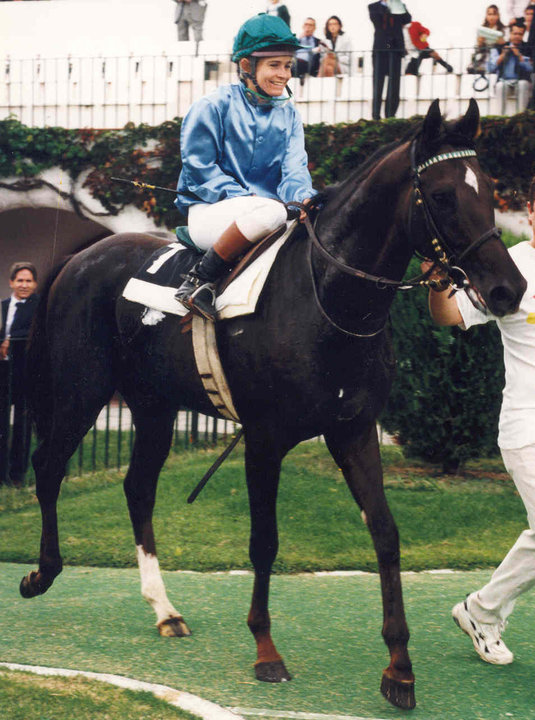
The really important message here is two-fold. First, if you are a good horseperson, you will be capable of dealing with lack of chemistry. Second, you may well end up loving a horse that isn’t your dream mount.
Few can wait for the perfect horse
The idea that you can wait for The Perfect Horse in all respects is foreign to many of us. Many of us are permanently on a budget (and, in my case, dedicated to getting her horses inexpensively. A $40,000 horse is just as likely to be slow and fragile as a $4,000 horse; believe me, I know from experience). (And no, I’ve never spent $40,000 on a horse. I have ridden a lot of horses that sold for that much and more). Sometimes, you have to take the best of a poor lot. Most of us don’t have unlimited horse-shopping budgets (even if we could get over the cheap-instinct).
You may learn to love the imperfect horses even more
The good news is that the horse you don’t really like can become the horse you love most of all… or the horse that wins the most for you. Even if you really don’t like it–at least you will have accomplished something together. The really cool thing is that the horses you think are losers are sometimes the same horses that end up being the most honest, steady companions.

Savannah (pictured here with my son) was another real challenge. I didn’t dislike her, but neither did I like her at first. 
to the point my sons could ride her 
By the end of several months of working to get her brain right, I was quite fond of her. And she really really improved…
The horse-human partnership is made, not given.
You have to work to forge that trust and companionship. A challenging horse can actually make this easier. You’ll be forced to spend more time and invest more thought in it. A horse that is a pleasure to ride from day one may still be a pleasure to ride after four years, but you’ll never have that sense of accomplishment, of having overcome difficulty in order to reach success.
The struggle that goes into making an imperfect horse a good partner speeds up the forging of the relationship that will see the two of you through unexpected challenges. You have to pay so much more attention to an imperfect horse. In consequence, you are much more likely to notice when it’s trying to tell you something, or something goes wrong.
So… by all means, buy the horse you love. But if you end up not finding a horse you love, or not having the budget to buy the horse you love, don’t worry. You might end up loving the horse you settled for a lot more.

Florita, the first horse to race with my colors, was simply the one we could find whose owner would lease. 
Florita came with a reputation for DIFFICULT, and I’d ridden her a year before I leased her, so I knew she would wheel repeatedly on the way BACK to the stable after workouts.. go figure. But we got along really well after a few weeks.
